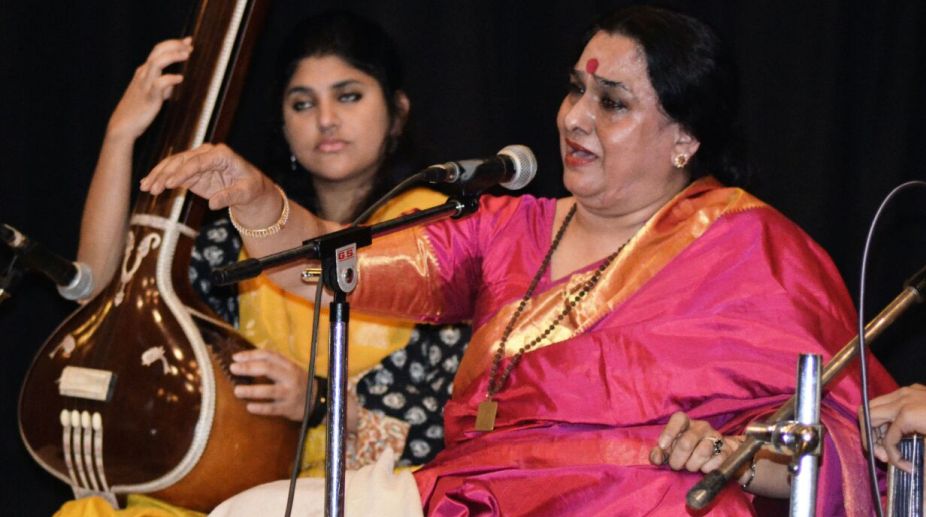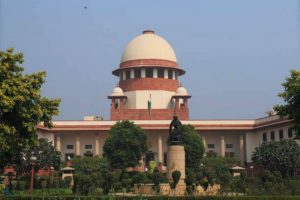"A teacher affects eternity; he can never tell where his influence stops," Henry Adams once said. Such was the charm of rudra veena maestro and Padma Bhushan awardee Ustad Asad Ali Khan, who taught his students a lesson of honesty through music.
“He was the torch bearers of the ‘Dhrupad Shayli’, a great rudra veena player and undisputedly one of the greatest musicians of the century. He had the complete purity of ragas. His aesthetics, techniques and accuracy were the factors that set him apart,” Madhumita told thestatesman.com, hailing the legend at a classical music concert she organised in the capital to pay tribute to him.
Advertisement
Madhumita Ray is a Khyal singer, the modern genre of Hindustani classical developed from the Dhrupad Shayli introducing frequent alankars and taans. Having trained under Khan for almost 18 years, she recalled some of his inspiring ideas at 'The Maestro and His Music: Tribute to Ustad Asad Ali Khan' — at the India International Centre here on February 26.
“What’s the point of practising if there isn’t any perfection in it? Everything you do should be relevant to your style. How you start with a raga, extend, and carve ways to the other ragas,” she said.
“He didn’t compromise at all, in anything. He will never tell a lie. If he thinks something is not right, he will tell straight away. He was absorbed in his music and belonged to another place,” she said, adding, "When I met him first, he decorated my own song without disturbing my style. He instilled discipline in us and the accuracy of being aesthetic.”
Khan, who breathed last on 14 June 2011, was the custodian of the rudra veena, a large plucked string instrument, at a time when the deep-sounding instruments were being pushed toward obscurity by the likes of sitar and santoor.
“A maestro, who had such an immense contribution to Hindustani classical, is needed to be remembered every year so that we don’t forget what he was. We want to emulate him in ways he wanted us to function and perform with divinity,” Madhumita said, when asked about the inspiration behind the event.
Madhumita has performed in numerous prestigious festivals and venues in India and abroad, and has collaborated with other forms such as jazz, folk, baul and sufi to produce some of the greatest music blends with Indian classical.
“You have to be a bit open-minded for fusion. When you blend your work with someone else’s, you need to forget a bit of yours. You need to explore facets of your music that matches with the other form of music. It’s a different type of challenge and imagination.”
The Delhi-based artiste, who obtained her Sangeet Alankar from the Gandharv Mahavidyalaya in 1984, is also a music educationist specialising in voice culture therapy.
Talking about the voice culture therapy and its aesthetics, she explained: “If there’s a bush which is wild, you trim it to give it an appealing shape. This is what voice culture therapy is. If your voice is good but there is no discipline, no modulation in it, it's of no use. It’s just like education, where you can write poetry, but accurate grammar is needed to strengthen the case.”
“Picking out the facets of a human voice, like if the voice is heavy, we range it accordingly. Modulation is all about how you control your breath, how to raise the voice and how to take it down effortlessly and uniformly,” she added.
Concluding with a pride in the gleaming auditorium, Madhumita emphasised there’s no music restricted for a specific group of people and said it’s important to connect with the audience, be it through any form of music.
“I always try to have a social message as I feel music is a very powerful medium. If someone prominent says something, a lot of people listen. From the contribution aspect, I would like to teach more, have workshops, and have lecture demonstrations so that the music becomes very much part of the everyday lives.”
Madhumita organised the concert under the aegis of Vageeshwari Foundation. It was graced by artistes like rudra veena player Carsten Wicke, a German-born Kolkata-based student of Khan, Sarod virtuoso Pandit Biswajit Roy Chowdhury, a student of Ustad Amjad Ali Khan and Pandit Mallikarjun Mansoor, besides finale performance by herself.











